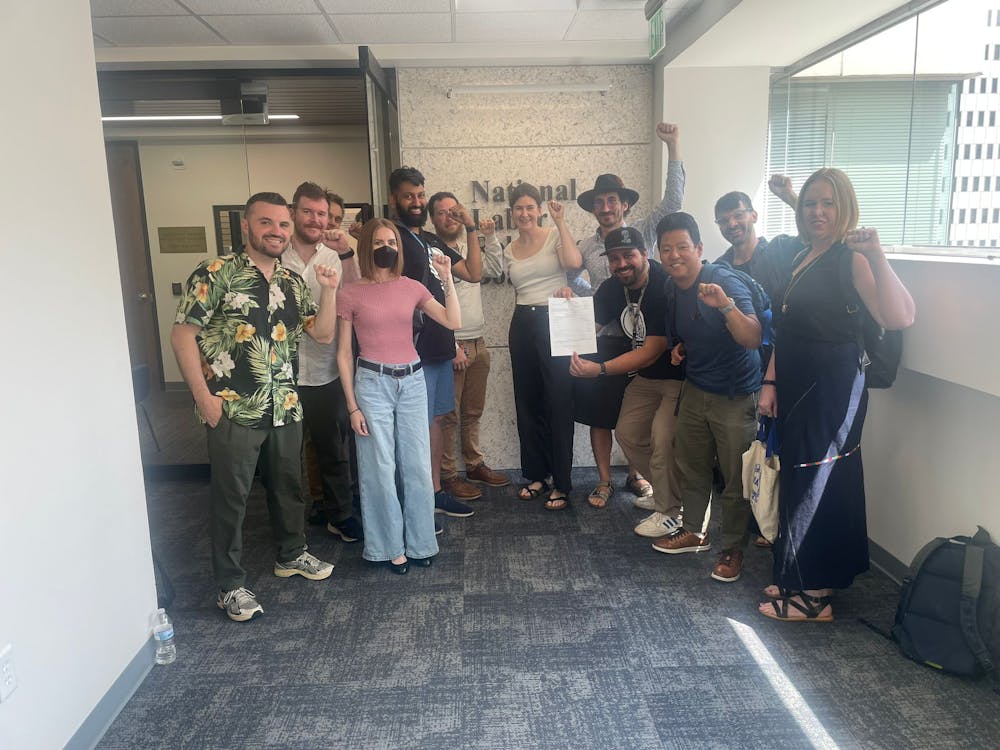After covering three-time Academy Award winner Walter Murch’s lecture on March 24, The News-Letter was fortunate enough to subsequently interview the Hopkins alum regarding his college career, symbolic representation and more.
N-L: You spoke in depth about your projects relying on multidisciplinary creative outlets. You’re drawn to particle theory, which joins forces with you passion for Italian, poetry, music and film studies ...
WM: Mhmm.
N-L: That got me thinking, because here at Hopkins we have the freedom to really specialize, and students overall tend to focus on individual passions. What do you think about Hopkins lacking a core curriculum? Should students be required to learn visual arts and languages and general sciences?
WM: I’m, in general, in favor of core curriculums — especially for undergraduates. Once you go to graduate school, then absolutely you can dribble down and focus on your area of expertise and what you really want to do.
I feel like kids who are 17 or 18 — many of whom are going away from home for the first time — they’re learning about themselves as much as they’re learning about the subject matter ... I think it’s good to expose kids to a variety of different things that are not necessarily of their own choosing.
That allows people to have a common point of reference. If everyone goes off and does their own thing, then the basis for deeper conversations isn’t quite as good because you don’t have the same reference points that you would have if maybe half of the classes you took were required, core classes.
N-L: I agree. I also think it improves respect across fields.
WM: That was certainly true when I went to film school. Even as a graduate student, the film school said, “We don’t care what you think you might want to do, because you don’t really know what you want to do yet. This is all new material to you.” It was the cinematic equivalent of a core curriculum.
Even if someone really wanted to be a director, they had to take sound recording and if someone really wanted to be an editor they had to take producing and five or six other required classes. It was certainly a valuable experience, so that’s my own take on it.
N-L: You originally planned to study oceanography while at Hopkins but switched your focus to the liberal arts. Could you speak on this decision to change directions?
WM: At the end of that first year I had taken geology and ... if I pursued oceanography I would have the knowledge to understand the geologic processes that go on under the ocean. But, for various reasons, it didn’t take. I enjoyed it up to a point but I didn’t think it was for me.
So, at the beginning of the second year, I audited many different classes and what I was looking for was not really the subject matter but the teachers ... that could really inspire me or whom I felt some real interest in.
It was the result of that, after about three or four weeks, that I gravitated towards the history of art and romance languages. It was a teacher-based decision rather than subject matter exclusively.
N-L: You described human beings as uniquely in pursuit of replicating the world around us. Is there a subject or theme you feel deserves the most reproduction?
WM: No, not really. There’s just that peculiar ability human beings have thanks to the way our brains are constructed. We can reproduce certain aspects of the world symbolically; either in language and writing or song or dance or in painting or now in photography and film. It seemed to be a characteristic of the way human beings relate to the world; whether you were ... doing it for artistic reasons or scientific reasons or some blend of the two.
That’s the wonderful thing about working in film ... Every film is a new way of representing the world. It’s a new subject matter and if the approach of the filmmaker is unique, it’s also a new way of looking at the world. And the people who go to watch the film benefit not only for learning about the subject matter or just being amused, but at the same time acquire a slightly different way of looking at the world after the two hours of having been sitting there watching the film.
In a sense, you kind of gain another pair of eyeballs or ears with which to look at or listen to the world.




